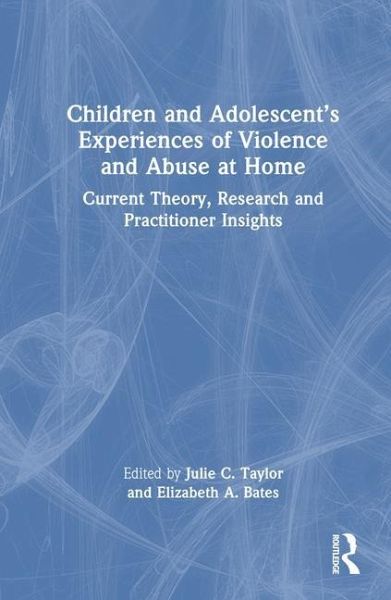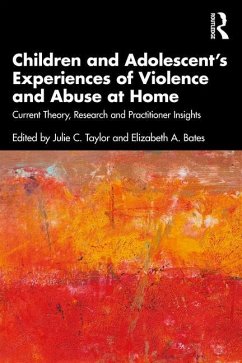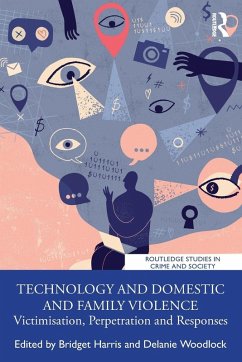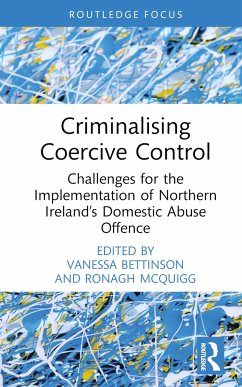
Children and Adolescent's Experiences of Violence and Abuse at Home
Current Theory, Research and Practitioner Insights
Herausgegeben: Taylor, Julie C.; Bates, Elizabeth A.
Versandkostenfrei!
Versandfertig in 6-10 Tagen
138,99 €
inkl. MwSt.

PAYBACK Punkte
69 °P sammeln!
Children and Adolescent's Experiences of Violence and Abuse at Home is a unique book that explores some of the main controversies and challenges within the field. The book is organised into three sections, the first covering work that has focused on the experiences of living in DV settings as a child or young person, the second offers overviews of the impact of child victimisation and the final section is about working with children in practice and service-based settings.It includes extensive reviews of the literature, empirical research and practice observations, all of which provide compelli...
Children and Adolescent's Experiences of Violence and Abuse at Home is a unique book that explores some of the main controversies and challenges within the field. The book is organised into three sections, the first covering work that has focused on the experiences of living in DV settings as a child or young person, the second offers overviews of the impact of child victimisation and the final section is about working with children in practice and service-based settings.
It includes extensive reviews of the literature, empirical research and practice observations, all of which provide compelling evidence of a need to change how we construct victims and design services. It provides evidence for the need to work sensitively, inclusively, and responsively around issues of victim identification, support, and prevention. Moreover, the evidence urges us to include children's and adult victim/survivor's experiences and contributions in the creation of services.
Concluding with a series of recommendations for both future research, and ways in which we can help use the research findings to inform practice, it is a must-read for researchers, practitioners and educators working with children and young people within the field of domestic violence and abuse. It will also be of interest and value to policy makers who are reviewing legislation and those involved in commissioning psychological services, and victim services that work with child and adolescent victims.
It includes extensive reviews of the literature, empirical research and practice observations, all of which provide compelling evidence of a need to change how we construct victims and design services. It provides evidence for the need to work sensitively, inclusively, and responsively around issues of victim identification, support, and prevention. Moreover, the evidence urges us to include children's and adult victim/survivor's experiences and contributions in the creation of services.
Concluding with a series of recommendations for both future research, and ways in which we can help use the research findings to inform practice, it is a must-read for researchers, practitioners and educators working with children and young people within the field of domestic violence and abuse. It will also be of interest and value to policy makers who are reviewing legislation and those involved in commissioning psychological services, and victim services that work with child and adolescent victims.














